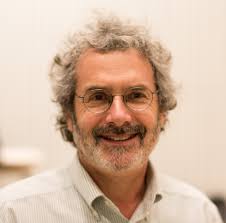
Neil Gershenfeld
publishedDirector, MIT Center for Bits and Atoms
Prof. Neil Gershenfeld is the Director of MIT's Center for Bits and Atoms, where his unique laboratory is breaking down boundaries between the digital and physical worlds, from pioneering quantum computing to digital fabrication to the Internet of Things. He has been elected a Member of the National Academy of Engineering, a Fellow of the American Association for the Advancement of Science and of the American Physical Society, has been named one of Scientific American's 50 leaders in science and technology, as one of 40 Modern-Day Leonardos by the Museum of Science and Industry, one of Popular Mechanic's 25 Makers, has been selected as a CNN/Time/Fortune Principal Voice, and by Prospect/Foreign Policy as one of the top 100 public intellectuals. He's the founder of a global network of over 2500 fab labs in 150 countries, chairs the Fab Foundation, and leads the Fab Academy.